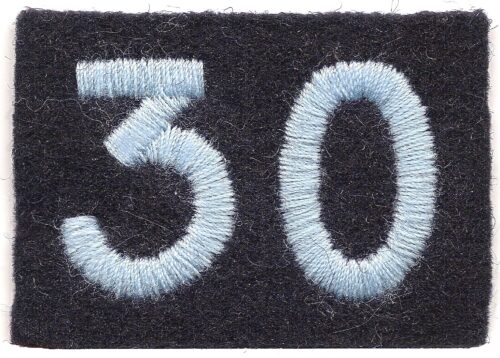Aston Martin DB5 Goldfinger Continuation © Aston Martin. Used by permission.
Ian Fleming is best known as the creator of James Bond, the fictional spy who has captivated millions of readers and moviegoers for over a half century. But before he became a successful novelist, Fleming had a remarkable career as a naval intelligence officer during World War II. His wartime experience not only provided him with the material and inspiration for his Bond stories, but also shaped his worldview and personality.
Fleming joined the Naval Intelligence Division (NID) in 1939, shortly after the outbreak of war. He quickly rose through the ranks and became the personal assistant to Rear Admiral John Godfrey, the Director of Naval Intelligence. In this role, he had access to classified information and was involved in planning and executing various covert operations. Fleming also traveled extensively to different theaters of war, such as North Africa, Europe and Asia.
Some of these operations and locations would later feature in his Bond novels, such as Operation Goldeneye, which was a plan to sabotage Nazi communications in Spain in case of an invasion. Fleming named his Jamaican estate after this operation, and it became his writing retreat where he penned most of his Bond books. Another example is Operation Mincemeat, which involved planting a corpse with fake documents to deceive the Germans about the Allied invasion of Sicily. This operation was the basis for his novel The Man with the Golden Gun.

Fleming also drew on his personal encounters with various spies, saboteurs, resistance fighters and other characters during his service. Some of them became models for his Bond villains, such as Erich König, a German spy who tried to assassinate Winston Churchill in Cairo, and who inspired the character of Hugo Drax in Moonraker. Others became allies or love interests for Bond, such as Christine Granville, a Polish-born agent who worked for the British Special Operations Executive (SOE) and who influenced the character of Vesper Lynd in Casino Royale.
Dusko Popov was a Yugoslav double agent who worked for both the British and the Germans during World War II. He was also one of the inspirations for Ian Fleming’s famous fictional spy, James Bond. Popov had a daring and adventurous life, often risking his life to deceive the Nazis and pass valuable information to the Allies. He also had a penchant for gambling, women, and luxury, which earned him the admiration of Fleming, who met him in a casino in Portugal in 1941. Fleming later used some of Popov’s exploits as the basis for his novels, such as Casino Royale and Moonraker.
Although Admiral Godfrey, is widely believed to have been the inspiration for the fictional head of MI6 in the series, many believe the use of the codename “M” by Fleming for Bond’s superior comes from the initial of the first name the Sir Mansfield Cummings. a British intelligence officer who served as the first chief of the Secret Intelligence Service (SIS), also known as MI6, during World War II. He signed documents with the initial “C” in green ink, a custom upheld throughout the history of the service.

Fleming also drew inspiration for his fiction from the commando types of 30 Assault Unit and their wartime operations. Known initially as the Special Intelligence Unit, 30AU was a secretive special forces unit created by Fleming during the war. He based this unit on a unit in in Nazi Germany named Marine-Einsatz-Kommando Schwarzes Meer, which was operated by the Abwehr. the German military-intelligence service for the Reichswehr and the Wehrmacht. Some of the operations of 30AU are still subject to the Official Secrets Act.
Fleming’s wartime experience not only gave him the raw material for his fiction, but also influenced his outlook and style. He developed a cynical and realistic view of espionage, politics and human nature, which contrasted with the idealism and patriotism of some of his contemporaries. He also acquired a taste for adventure, luxury and romance, which he reflected in his depiction of Bond’s lifestyle and missions. He wrote with a flair for detail, suspense and humor, which made his novels appealing and entertaining.

Fleming had been a journalist before war. According to some accounts, Fleming wrote his first Bond novel, Casino Royale, in 1952 to distract himself from the impending marriage to his lover, Ann Charteris. He based Bond’s appearance on the American singer and actor Hoagy Carmichael, whom he considered to have “the right sort of looks” for a secret agent. Fleming also borrowed traits and names from some of his acquaintances and colleagues, such as his brother Peter Fleming, a travel writer and former intelligence officer, and William Stephenson, who served as the senior representative of the British Security Coordination for the western allies during the war and who used the code name Intrepid.” Fleming’s friend Richard Chopping, a painter and writer who illustrated several of his Bond novels, also claimed that he was a source of inspiration for Bond’s personality and mannerisms. Fleming’s literary Bond evolved over time, and he even incorporated some aspects of Sean Connery’s portrayal of the character in the films, although Connery originally wasn’t Fleming’s first choice for the role.
To sum up, Ian Fleming’s war time experience was ta crucial factor in his creation of James Bond, one of the most iconic and enduring characters in literature and cinema. His novels were not only thrilling stories, but also reflections of his own life and times.
Resources
The Official James Bond 007 Website
007.com
The Official Website for Ian Fleming
IanFleming.com

